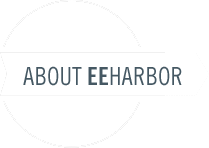Low Events Fieldtype
Settings
Datepicker week starts with
- Select the day that the datepicker uses as the first day of the week.
Time interval
- Select a time interval for the timepicker dropdown. Either 15, 30 or 60 minutes.
Default duration
- Select a default duration for an event. Either 0, 30, 60 or 120 minutes.
Check “All Day” by default
- Set to Yes to have the All Day checkbox checked by default.
Hide “All Day” checkbox
- Set to Yes to hide All Day checkbox. The default (as per the above setting) will be used for each event
Hide end date
- Set to Yes to hide the end date and time fields. The default duration will be used for each event.
Overwrite entry date
- Set to Yes to automatically set the entry’s entry date to the event start date.
Overwrite expiration date
- Set to Yes to automatically set the entry’s expiration date to the event end date.
Fieldtype Variables
:start_date
-
Returns the start date of the event.
Parameters
format
- The date format. Defaults to %Y-%m-%d.
lang
- The language pack used for the date format. Defaults to the default site or member language.
{my_events_field:start_date format="%j %F %Y"}:end_date
-
Returns the end date of the event.
Parameters
format
- The date format. Defaults to %Y-%m-%d.
lang
- The language pack used for the date format. Defaults to the default site or member language.
{my_events_field:end_date format="%j %F %Y"}:start_time
-
Returns the start time of the event.
Parameters
format
- The time format. Defaults to %H:%i.
lang
- The language pack used for the time format. Defaults to the default site or member language.
{my_events_field:start_time format="%H:%i"}:end_time
-
Returns the end time of the event.
Parameters
format
- The time format. Defaults to %H:%i.
lang
- The language pack used for the time format. Defaults to the default site or member language.
{my_events_field:end_time format="%H:%i"}:start_stamp
- Returns the UNIX timestamp for the start date/time.
{my_events_field:start_stamp}
:end_stamp
- Returns the UNIX timestamp for the end date/time.
{my_events_field:end_stamp}
:all_day
- Returns y if it’s an all day event.
{if my_events_field:all_day} This event is all day {/if}
:one_day
- Returns y the start date and end date are on the same day.
{if my_events_field:one_day} This event is on a single day {/if}
:duration
-
Returns a human readable duration of the event, or time until the event’s start/end date, e.g. 2 hours or 5 days.
Parameters
until
- Set to start or end to return duration from now until start date or end date.
This event lasts {my_events_field:duration}. Only {my_events_field:duration until="start"} until this event starts!
:relative_start_date
- Returns a string indicating the difference between the start date and now. Uses the relative dates feature available in EE 2.8+. All native parameters are available.
{my_events_field:relative_start_date units="years|months"}
:relative_end_date
- Returns a string indicating the difference between the end date and now. Uses the relative dates feature available in EE 2.8+. All native parameters are available.
{my_events_field:relative_end_date units="years|months"}
:passed
- Returns y if the event has passed.
{if my_events_field:passed} This event is history now. {/if}
:active
- Returns y if the event is active.
{if my_events_field:active} This event is happening right now! {/if}
:upcoming
- Returns y if the event has not yet begun.
{if my_events_field:upcoming} This is an upcoming event. {/if}
:first
-
Returns y if the start date of the event is the first in given unit.
Parameters
unit
- Either year, month, week or day.
{if '{my_events_field:first unit="month"}' == 'y'} First event of the month. {/if}
:starts_this
-
Returns y if event starts this (today’s) unit.
Parameters
unit
- Either year, month, week or day.
Note: for each unit, you can use the alias {my_events_field:starts_this_unit}.
{if '{my_events_field:starts_this unit="month"}' == 'y'} This event will start this month. {/if} {if my_events_field:starts_this_year}of this year{/if}:ends_this
-
Returns y if event ends this (today’s) unit.
Parameters
unit
- Either year, month, week or day.
{if '{my_events_field:ends_this unit="month"}' == 'y'} This event will end this month. {/if} {if my_events_field:ends_this_year}of this year{/if}
Example
